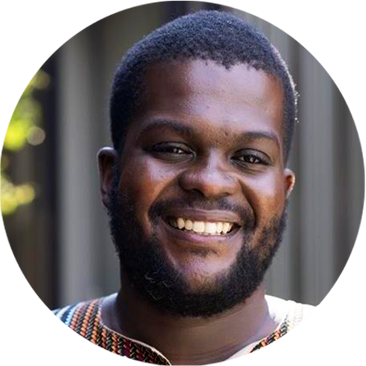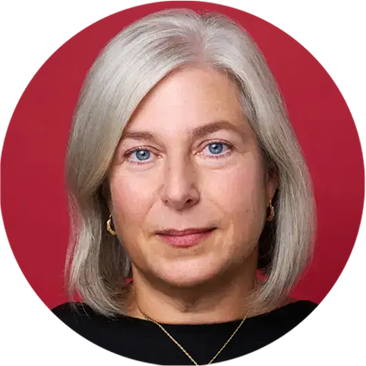/
Partnership on AI Appoints Six New Members to Board of Directors
Nonprofit Welcomes Leaders from ACLU, Brown University, Capital One, Ford Foundation, Microsoft, and University of Pretoria
![$hero_image['alt']](https://partnershiponai.org/wp-content/uploads/2024/07/new-directors-2024-v2-1800x945-1.png)
Partnership on AI, a multistakeholder nonprofit representing industry, civil society, and academia, welcomes six new members to its Board of Directors. The new board directors include leaders from the philanthropic, technology, and financial sectors, as well as civil society and academia, bringing a wealth of knowledge and expertise in advancing the responsible and ethical development and use of AI.
“I am excited to welcome these highly respected leaders to the PAI Board of Directors. I look forward to working with them to advance our mission of ensuring advancements in AI benefit people and society,” said Rebecca Finlay, CEO, Partnership on AI. “With deep, diverse expertise and longstanding leadership in this field, these six new Directors will bring invaluable advice on meeting this moment in the responsible and inclusive governance of AI globally.”
The new Board Directors are:
- Esha Bhandari, Deputy Director of the Speech, Privacy, and Technology Project, ACLU
- Natasha Crampton, Chief Responsible AI Officer, Microsoft
- Vukosi Marivate, Associate Professor of Computer Science, University of Pretoria
- Lori McGlinchey, Director of the Technology and Society Program, Ford Foundation
- Prem Natarajan, EVP, Chief Scientist and Head of Enterprise AI, Capital One
- Suresh Venkatasubramanian, Professor of Computer Science and Data Science, Brown University
“Partnership on AI plays an important role in the development of responsible AI around the world and I am excited to welcome our newest directors to the board,” said Jerremy Holland, Board Chair, Partnership on AI. “The diverse experiences of these new board members will bring important perspectives as we work together to continue addressing the opportunities and critical challenges that the development and deployment of advanced AI capabilities presents. I’d also like to thank Founding Board Chair Eric Horvitz and Founding Vice Chair Eric Sears for their contributions in founding PAI and guiding it to become the influential multi-stakeholder organization it is today.”
The addition of six new directors fulfills the planned expansion of the PAI Board size, providing space for additional diverse expertise, and the replacement of two of PAI’s longest standing and most influential founding Board Directors whose service terms have concluded: Founding Chair Eric Horvitz and Founding Vice Chair Eric Sears. PAI will be celebrating their leadership at an event later in 2024.
“PAI and our 12O+ Partners owe Eric Horvitz and Eric Sears our profound gratitude for their visionary leadership in building PAI into the worldwide organization it is today, ” said Finlay of PAI’s Founding Chair and Vice Chair. “I am thankful for their guidance and their tireless commitment to PAI’s engaged, multistakeholder community of Partners working together to build a future where AI is developed for equity, justice and shared prosperity.”
We look forward to our new board members’ contributions in shaping the future of technology and invite you to join us in welcoming them. Stay tuned for more updates as we build a better future for AI together by signing up for our newsletter.
About PAI’s New Board Directors

Esha Bhandari is the Deputy Director of the Speech, Privacy, and Technology Project at the ACLU. Bhandari works on litigation and advocacy to protect freedom of expression and privacy rights in the digital age. She also focuses on the impact of big data and artificial intelligence on civil liberties.
“The development of artificial intelligence should not come at the expense of human dignity, rights, and freedoms. I am pleased to join the Board of the Partnership on AI to advance its mission of ensuring that AI is developed for the good of humanity and in the public interest. I look forward to working with stakeholders across different sectors, all bringing their expertise to find common ground to support this purpose.” —Esha Bhandari

Natasha Crampton is the Chief Responsible AI Officer at Microsoft. As the company’s first Chief Responsible AI Officer, Natasha Crampton leads Microsoft’s Office of Responsible AI, which puts Microsoft’s AI principles into practice by defining, enabling, and governing the company’s approach to responsible AI.
“Partnership on AI does a remarkable job of bringing together leaders from across sectors to advance AI responsibly and equitably. From its inception, PAI was ahead of the curve on AI, thinking about its potential impacts on people and society, and crafting human-centric policies and practices that draw strength from PAI’s inclusive processes. I look forward to helping shape the future of PAI. Its work has never been more essential.” —Natasha Crampton

Vukosi Marivate is an Associate Professor of Computer Science at University of Pretoria. Prof Vukosi Marivate holds the ABSA UP Chair of Data Science at the University of Pretoria. He specializes in developing machine learning and artificial intelligence methods to extract insights from data, with a particular focus on the intersection of ML/AI and Natural Language Processing (NLP). His research is dedicated to improving the methods, tools and availability of data for local or low-resource languages.
“I am excited to join the PAI board and look forward to both learning from and contributing my perspectives to its vision. I am committed to representing the African community that I have been a part of and will strive to ensure that our work fosters more equitable AI that represents all voices, while reducing our societal and environmental risks.” —Vukosi Marivate

Lori McGlinchey is the Director of the Technology and Society Program at Ford Foundation. As the director of the Ford Foundation’s Technology and Society program, she leads Ford’s efforts to support organizations working to ensure that the internet and digital technologies are designed and governed in ways that advance social and economic justice, particularly for those experiencing persistent discrimination.
“Technology, data, and automated systems should be safe and effective, designed and governed to advance individual and community well-being and flourishing. This is really hard to achieve. Over and over again, we’ve seen rapid and unconstrained technology development replicate existing systemic harms, or invent new ones. Partnership on AI is a rare and important forum that brings industry and civil society together in a serious way to address some of the most consequential and difficult questions concerning the future of technology and society.” —Lori McGlinchey

Premkumar Natarajan, Ph.D. is the EVP, Chief Scientist and Head of Enterprise AI at Capital One. As Chief Scientist and Head of Enterprise AI at Capital One, Prem leads the technology strategy, architecture, and development for Capital One’s enterprise data, analytics, AI, and machine learning initiatives, including advancing its AI capabilities, tools, and research efforts.
“When applied thoughtfully and responsibly, AI has the potential to unlock transformative value and broad societal benefits. Achieving this future will require multidisciplinary, multistakeholder frameworks and partnerships that bring diverse equities and experiences to the table – and Partnership on AI is helping lead the way. I’m delighted to re-join the Board of Directors and to deepen Capital One’s relationship with the Partnership as we collectively work to advance trustworthy and safe AI alongside industry, civil society, academia and media partners.” —Prem Natarajan

Suresh Venkatasubramanian is a professor of Computer Science and Data Science at Brown University. A professor of Computer Science and Data Science at Brown University, he directs the Center for Technological Responsibility, Reimagination, and Redesign. Suresh’s current research interests lie in algorithmic fairness, and more generally the impact of automated decision-making systems in society.
“I’m delighted to be joining the board of PAI. I’ve spent many years in the trenches understanding the way in which algorithms, AI, and automated decision making impacts people and society. It’s now well past time to act, and build the governance frameworks that will allow us to make use of technology in a way that serves us all, without harming us in the process. PAI, through its rich network and connections with practitioners, is ideally placed to make this happen.” —Suresh Venkatasubramanian

